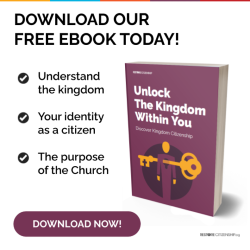Islamic “extremism” has caused much political and civil unrest in recent times. You can sense growing national fears of a foreign ideology that seeks to usurp the established order.
Continue to listen or read this article below.
It is fear of this other ideology taking root that led to an enquiry with special scrutiny on Islamic schools. Then came talk of a need to define “British values”. And for those who thought British values were a stiff upper lip, tea and binge drinking, here is what they produced:
- Democracy
- The rule of law
- Individual liberty and mutual respect
- Tolerance of those with different faiths and beliefs
Besides the varying ambiguity of these core values, it is clear that it’s a reactionary document aimed at addressing the perceived threat posed by Islamic ideology and religious dogma.
What is Sharia?
Sharia is defined as Islamic law based on the teachings of the Koran and the traditions of the prophet Mohammad, it is the Islamic legal system.
It is no secret that there are indeed many Muslims who desire the day when Sharia rules the earth, and in a bid to realise this dream history is littered with ‘Islamic’ wars aimed at establishing the ‘Islamic state’(or caliphate) governed by the precepts of Allah.
Many Muslims have a romantic idea of Sharia but for the average man the idea of Sharia law immediately conjures up pictures of hands being chopped off, women being stoned and Christian persecution. And though these aspects are present under Sharia, it should first be understood as simply another legal framework. This idea of another judicial framework operating outside of the established state order is enough to cause alarm for many.
But there is a principle that sits behind Sharia that even believers should agree with and that is the recognition that the source of law is the supreme lawgiver; which we know is Yahweh (The God of Abraham Isaac and Jacob). To be clear, belief in the highest law coming from heaven and not from earth isn’t a new concept. It isn't even radical, it’s only become a radical idea in a godless idolatrous age which thinks morality can be birthed out of the vacuum of human thinking.
The most ancient civilizations and law codes such as the code of Hammurabi, ascribed the origins of law to a divine lawgiver. Even America's forefathers are famous for recognising the Creator as the grantor of 'unalienable rights' concerning 'life' and 'liberty'. So we may reject Islam and it’s teaching but we cannot join the secularized masses in thinking that the divine law is an outdated concept. In-fact as Kingdom citizens we can not afford to forget that our King is the supreme lawgiver and claims ownership over all things (as Psalm 24 says, ”The earth is the Lord’s and everything in it”). His will supersedes all lesser laws.
Do we have our own legal system?
Plenty Muslims all around the world are determined to see Sharia realised not only in their communities but imposed on everyone else. Many believers, unconscious of the Kingdom of God busy themselves with fighting to uphold the ‘righteousness’ of democracy, with little thought to theocracy. Hands down I prefer the pseudo-democracy of Britain to the Sharia of ISIS. But I know it is a lesser system than that which God desires for his people (Kingdom citizens not UK citizens). It is not fitting to impose the values of the Kingdom on a people whose hearts have not been converted, but at least amongst ourselves we should desire and subscribe to God’s judiciary, don’t you think?
There is a biblical expectation to see God's people judge matters with divine wisdom. For example when an issue arises in the Corinth Ekklesia Paul rebukes them by saying
“If any of you has a dispute with another, do you dare to take it before the ungodly for judgment instead of before the Lord's people?”...
“I say this to shame you. Is it possible that there is nobody among you wise enough to judge a dispute between believers?”(1 Corinthians 6:1 and 5).
This speaks to an expectation of a judgmental body. He was rebuking believers who took other believers to lesser secular courts instead of recognising the higher legal system available under a theocracy. If we don’t pay attention to the law of God how can we expect other nations to see His glory and wisdom manifest in His people? (Read Deuteronomy 4:6).
We still have issues today that demonstrate even believers do not subscribe to or desire the higher law and run for sanctuary in lesser courts. A good example would be the divorce crisis. A theocratic position would heal many relationships and would not allow for the disregarding of God’s law which forbids such a course of action.
Unlike the systems of the world, a theocratic community will lay on every citizen the responsibility to uphold the law and legislate it in their sphere. We see a judicial process outlined to deal with sin and offense in Matthew chapter 18, complete with a form of escalation to ensure issues are addressed.
- First. Go to the offender. But if he doesn’t listen to you...
- Second. Bring one or two witnesses. If still not listened to...
- Third. Bring it before the Ekklesia for judgment. And if the council is not listened to...
- Fourth. Treat the criminal as an outlaw (someone operating outside of the law).
Christ concludes with giving us the power to bind on earth and in heaven. In other words agree and pronounce words that settle a matter as legally binding and enforced on earth and in heaven. Following the divorce crisis example just highlighted, this power entrusted to the Ekklesia is seen in the binding covenant ratified in marriage. Reminding us that the power to bind a couple together belongs to the Ekklesia and not the secular state. How often even believers look to lesser judicial systems for approval, sanction and legitimacy. We forget the power the King of kings entrusted to His princes, when we forget we are part of His ruling house.
We still have work to do as we mature in this understanding and its practical outworking. But believers will increasingly be confronted with other lesser and false legal systems, preaching and enforcing false laws and imposing contrary ideologies. And you will be swept with the tide if you forget there is another legal system that overrules all.





